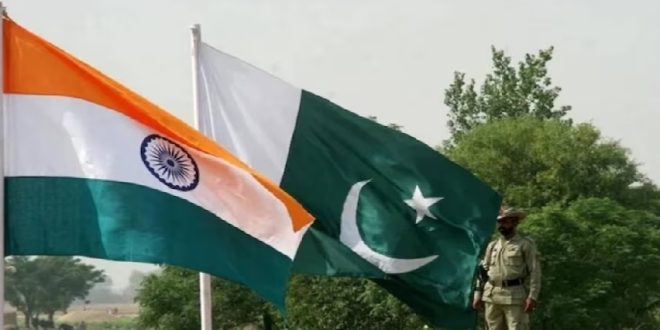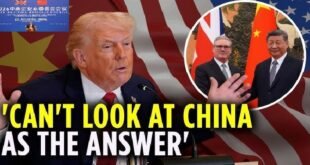04-08-2023
Bureau Report + Agencies
ISLAMABAD/ WASHINGTON/ NEW DELHI: A day after Pakistan’s leader proposed “conditional” talks with archenemy India, the United States said it supports direct talks between the nuclear-armed South Asian neighbors.
Pakistani Prime Minister Shehbaz Sharif on Tuesday said he was ready to resume bilateral dialogue with India.
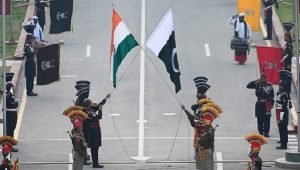 Pakistan downgraded diplomatic ties with India in 2019 when New Delhi scrapped the special status of Indian-administered Kashmir. The status gave semi-autonomy to the disputed Himalayan region, which is also claimed by Pakistan.
Pakistan downgraded diplomatic ties with India in 2019 when New Delhi scrapped the special status of Indian-administered Kashmir. The status gave semi-autonomy to the disputed Himalayan region, which is also claimed by Pakistan.
Since their independence from British rule in 1947, the two countries have fought two of their three wars over Kashmir.
“We are prepared to talk with everyone, even with our neighbor, provided that the neighbor is serious to talk about serious matters on the table because war is no more an option,” Sharif said in Islamabad.
When asked to respond to Sharif’s statement, US Department of State spokesperson Matthew Miller on Wednesday said the US has always maintained the two countries should engage in dialogue.
“As we have long said, we support direct dialogue between India and Pakistan on the issues of concern. That has long been our position,” Miller said.
India accuses Pakistan of supporting a decades-old armed rebellion in Indian-administered Kashmir against Indian rule. Pakistan denies the allegation, saying it provides only diplomatic support for the region’s struggle for self-determination.
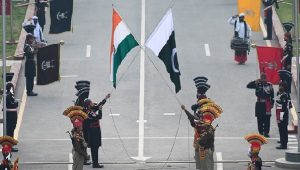 The fraught relations between the two neighbors worsened after August 5, 2019, when India’s Hindu nationalist government, led by Prime Minister Narendra Modi, unilaterally revoked the partial autonomy of Indian-administered Kashmir and brought it under New Delhi’s direct control.
The fraught relations between the two neighbors worsened after August 5, 2019, when India’s Hindu nationalist government, led by Prime Minister Narendra Modi, unilaterally revoked the partial autonomy of Indian-administered Kashmir and brought it under New Delhi’s direct control.
Sharif on Tuesday said the two nations should look ahead, adding that the three wars in the past and ongoing animosity has caused only more poverty and impacted the wellbeing of their people.
“We have to adopt, or to have an economic competition, because God forbid if there is a nuclear flashpoint. Who will live to tell what happened? So that is not an option at all,” he said, adding that India must understand the risks.
It was the second time this year that Sharif had made overtures towards India after a similar statement in January during his visit to the United Arab Emirates.
In an interview to an Emirati news outlet, Sharif had then asked the UAE to organize and mediate India-Pakistan talks.
Aizaz Chaudhry, Pakistan’s former foreign secretary, told Al Jazeera the two nations need to be on the same page regarding the holding of talks on contentious issues.
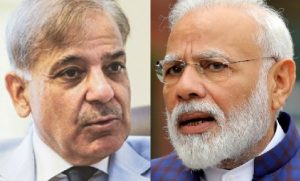 “PM Sharif’s statement showed Pakistan’s stance and (the US) State Department also endorsed it, but the problem is if India remains unwilling to hold a dialogue, what can Pakistan do? It takes two to tango, and if one side does not respond, a dialogue cannot start,” he said.
“PM Sharif’s statement showed Pakistan’s stance and (the US) State Department also endorsed it, but the problem is if India remains unwilling to hold a dialogue, what can Pakistan do? It takes two to tango, and if one side does not respond, a dialogue cannot start,” he said.
The former diplomat said he was sceptical of any breakthrough in the near future.
“I don’t think any third-party mediation is possible. … We recently saw China playing a role between Saudi Arabia and Iran, but that was only possible because the two countries were ready to talk, a scenario which we don’t have with India right now,” he said.
A couple of months ago, media flashed a news that as the fallout from a recent heated exchange between the foreign ministers of India and Pakistan continues to play out in the public sphere, analysts say both officials put up a “performance” for their respective domestic audiences.
During his visit to India for the Shanghai Cooperation Organization (SCO) summit, Pakistan Foreign Minister Bilawal Bhutto Zardari urged member nations to avoid using “terrorism” as a diplomatic instrument.
 Pressmediaofindia
Pressmediaofindia
